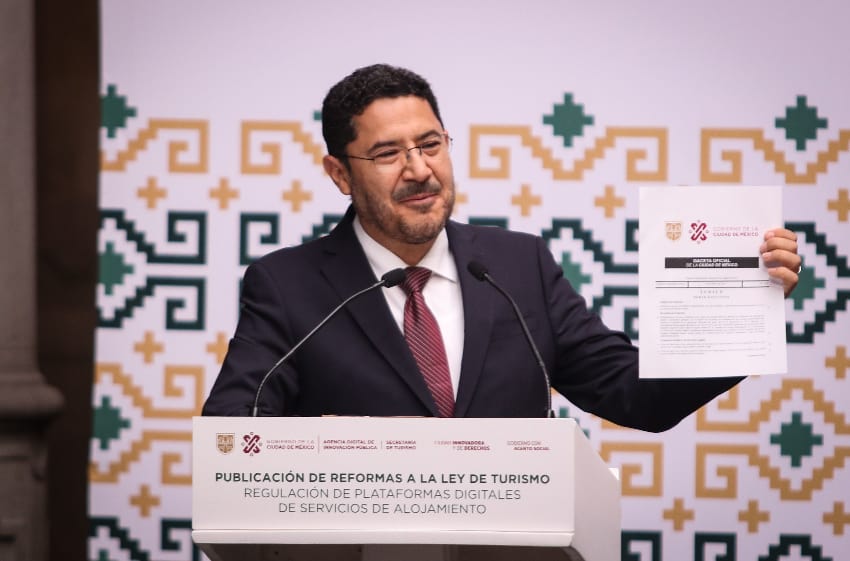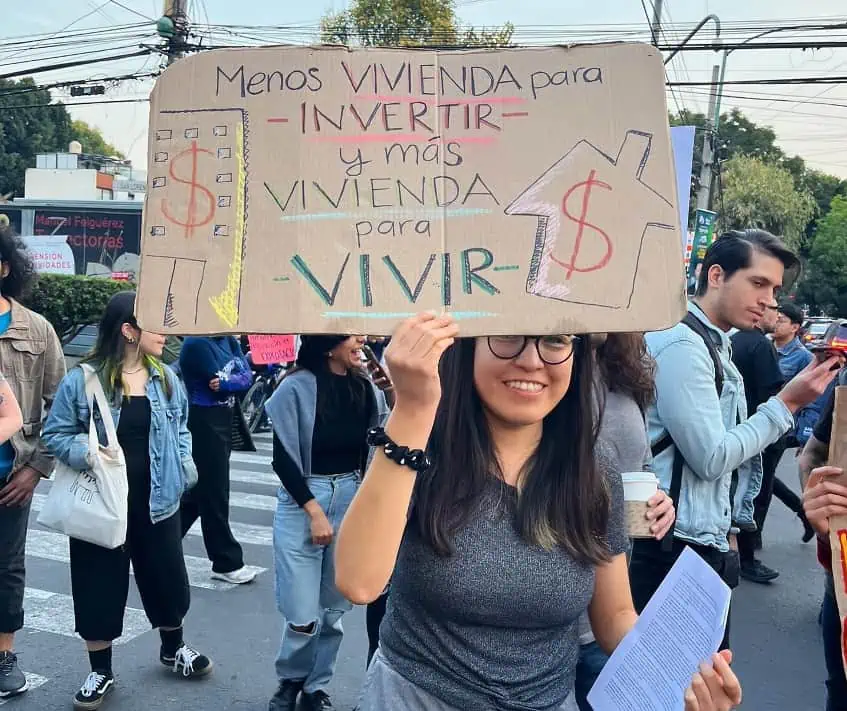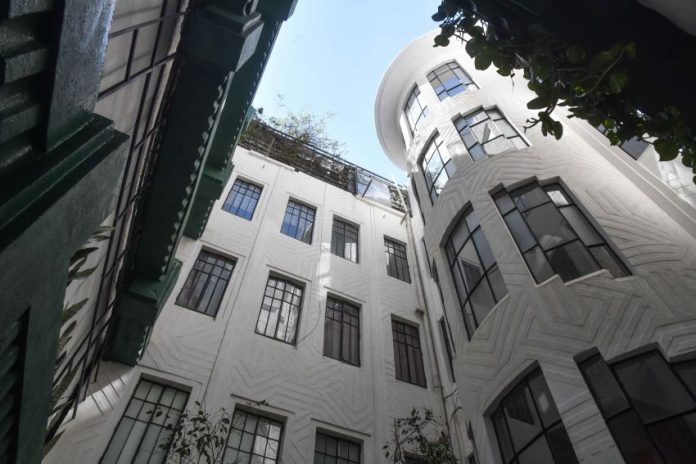New regulation affecting temporary accommodation services offered via digital platforms like Airbnb and Booking.com came into effect as of Thursday in Mexico City.
The regulations were approved in March after the capital’s mayor, Martí Batres of the ruling Morena party, submitted them to the city congress late last year.

What does the new regulation require of hosts?
Under the new rules, which were published Thursday in the official gazette of the Mexico City government, national or foreign hosts must register in a new Registry of Technological Platforms and list the properties they make available to tourists for residential use. When registering, hosts must specify the technological platform or platforms through which each property is being offered. They must also provide proof of civil liability insurance.
Hosts must submit two reports annually to Mexico City’s Tourism Ministry (Sectur) in January and July, including details on property occupancy and nights stayed. Providing false information or failing to submit such reports will result in removal from the registry per the new regulations.
Additional responsibilities include informing neighbors about the property being rented on the platform, maintaining clean and safe facilities for tourists, observing tax regulations, visibly displaying proof of registration with Sectur and ensuring that homes are not used for activities that disrupt public order or are against the law.
Hosts who own more than three properties must apply for a special permit to register a fourth. If granted, they must observe specific tax regulations for commercialized housing.
What does the new regulation require of hosting platforms?
Hosting platforms must also register in the Registry of Technological Platforms and keep their registration current. Registrations are valid for two years and must be renewed at least thirty days before expiration. They must also provide proof of civil liability insurance.
Hosting platforms must require hosts to provide proof of registration with Sectur before listing a property on their website. This registration number must be included in each property advertisement.
They must also submit bi-annual reports to Sectur, including details on property occupancy and nights stayed.
Moreover, hosts must implement security measures to protect minors staying at their properties.
How is this regulation expected to mitigate rising housing costs in CDMX?
The increasing number of short-term rental accommodations has played a role in the displacement of residents and a rise in the cost of living in specific areas of Mexico City.
According to the Mexico City Congress, the new law seeks to “generate balance in real estate development without generating land speculation or gentrification scenarios.”
Frida Guillén, a National Action Party (PAN) deputy and head of the Tourism Commission in the city congress, told news outlet Pie de Página that the new regulations are just a “first step” in slowing gentrification. The next step would be the implementation of a “digital nomad” tax, where individuals staying for more than twenty nights would be charged an additional fee.

Lawyer and housing specialist Carla Escoffie, on the other hand, told Pie de Página that while requiring liability insurance was a positive step, the modifications to the Tourism Law are insufficient and primarily aimed at benefiting the hotel industry. “In terms of addressing the issues that have emerged around housing and the city in terms of the impact Airbnb can have on cities, this is not a reform that addresses that,” Escoffie said.
When do hosts and hosting platforms have to register?
Starting Thursday, Sectur has 180 days to create the Registry for Technological Platforms. Once the register is available, hosting platforms have 30 days to submit their registration process. In turn, hosts will have 90 days to register.
Upon registration, the hosting platforms may request an one-time extension of 90 calendar days to submit the first bi-annual report.
With reports from Animal Político, Pie de Página
